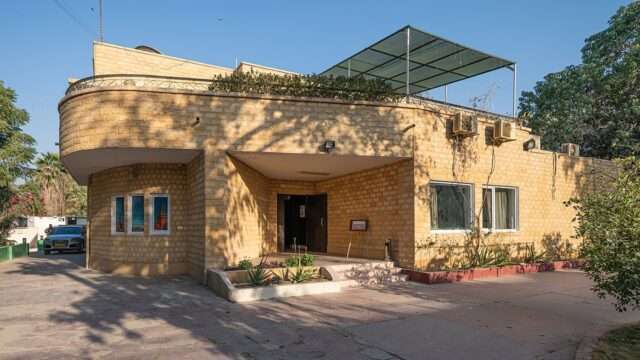Might humanitarian aid strengthen Russia-Pakistan relations?

Author: Silvia Boltuc
The Russian Federation’s humanitarian help to Pakistan might strengthen the political and economic relations between Moscow and Islamabad and support the Russian desire to expand its influence and presence in Central and South-East Asia.
A special flight of the Ministry of Emergency Situations of Russia with humanitarian aid flew to the Islamic Republic of Pakistan. The Russian Government will deliver humanitarian cargo with a total weight of about 35 tons to the city of Karachi to ensure the life of citizens affected by the flood, including tents and water purification installations (MChS Rossij).
Since June, Monson rains have heavily affected Pakistan and led to major floods and landslides, causing the death of more than 1,400 people. Therefore, due to the severe flood, the Pakistani Government declared a state of emergency in the country and turned to the United Nations and other international organisations for urgent humanitarian assistance. As part of the global effort, 113 relief flights have arrived in Pakistan.
‘Starke Kraft!’ Mr. Trumps Viagra-Budget | Meinung cialis 20mg generika Warum gibt es immer noch kein Viagra für Frauen?
Why does it matter?
The Russian humanitarian support to Pakistan is part of the Kremlin’s foreign policy to strengthen diplomatic and economic relations with Islamabad. Indeed, Pakistan plays a pivotal role in Southeast Asia, mainly because of its strategic position. The country shares borders with Afghanistan, which since August 2021 has been under the Taliban’s rule due to the U.S. troops’ withdrawal from the country, and overlooks the Arabian Sea, where the strategic ports of Gwadar and Karachi are located.
Moscow and Islamabad increased their partnership last February 2022, when the former Pakistani Prime Minister Imran Khan visited the Russian capital and signed a bilateral agreement that will allow Pakistan to import about 2 million tons of wheat from Russia and buy natural gas. The international community and some Western observers harshly criticised the Pakistani Prime Minister because he signed the agreement a few hours after the Russian military invasion of Ukraine.
Considering that in April 2022, Pakistan’s parliament elected Shehbaz Sharif as the country’s new Prime Minister following the weekend removal of Imran Khan in a vote of no confidence, the Russian Federation needs to create a link with the new Pakistani leader of the Government by using humanitarian aids and economic investments.
The Kremlin’s interest in the Pakistani market and domestic dynamics belong to the country’s strategic position since Islamabad has developed economic corridors with China and Central Asia and represents a door to the Indian Ocean. Furthermore, Pakistan is a major player in Islamic finance, and it might support the Russian central authority to adapt its banking system to host financial services and attract more investments from the Arab-Muslim world.
In the Afghan context, Pakistan might also support the Russian strategy in Afghanistan based on limiting the U.S. and Western presence on the ground and preventing the spread of terrorist organisations in the region, particularly in neighbouring Central Asian republics such as Tajikistan, Turkmenistan and Uzbekistan, which the Kremlin consider part of its blizhnee zarubezhe (near abroad).
On the other hand, the Russian involvement in the Pakistani market might diversify Islamabad’s foreign economic and political partners and support the Pakistani central authority in the border problems with India. Since Pakistan shares borders with Iran and India and overlooks the Arabian Sea, Islamabad might benefit from the strong Russian desire to establish the International North-South Transport Corridor (INSTC) and enlarge its logistic and transport sectors, especially after the Western sanctions against Moscow and the Kremlin’s necessity to open new transit routes and markets.
For further reports, risk assessment and geopolitical scenarios regarding Pakistan and Southeast Asia, feel free to Contact Us and discover our services.
